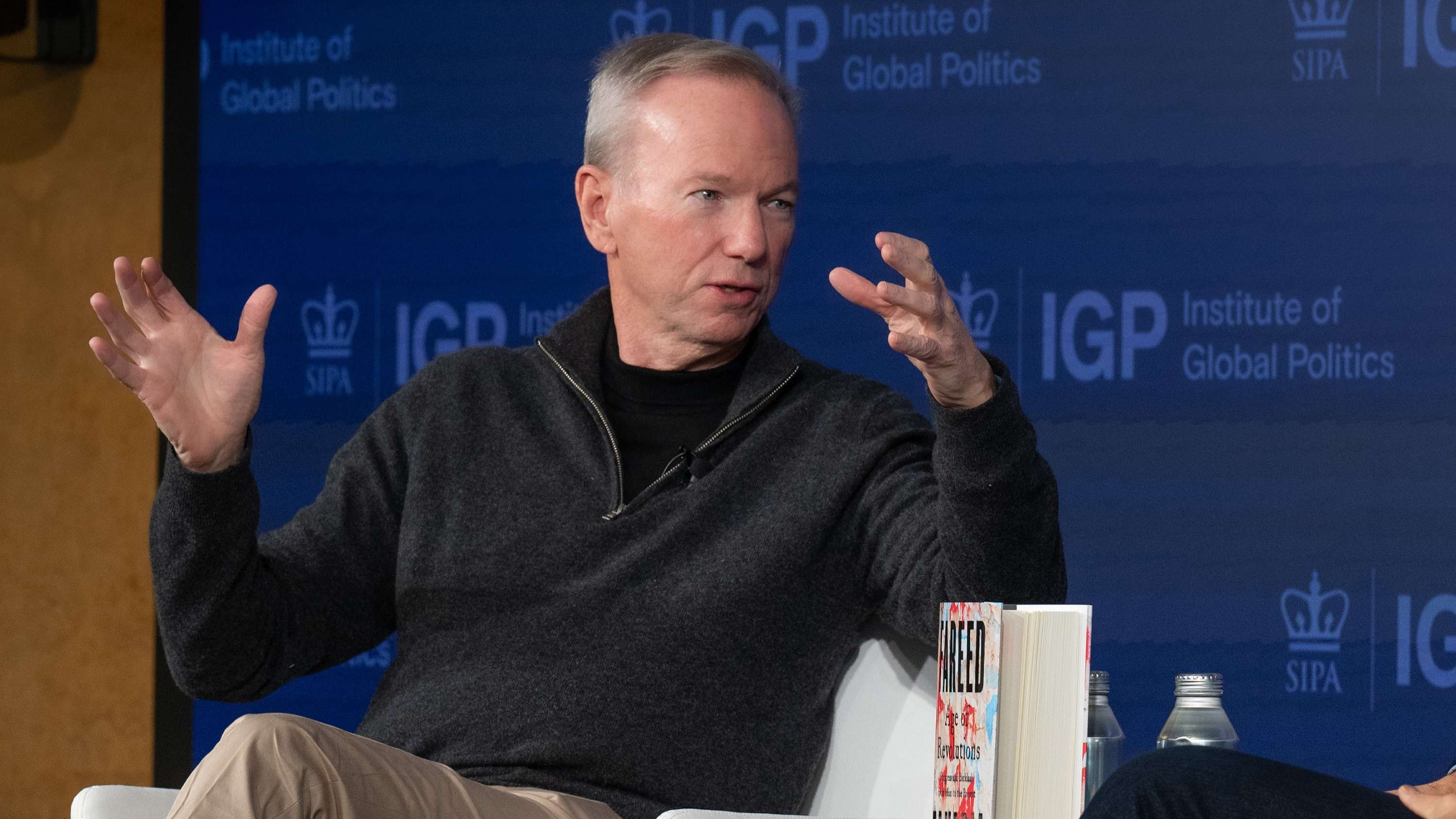"There's no evidence scaling laws have begun to stop": Former Google CEO claims AI systems will be 100 times more powerful, leading to new warfare challenges — as Sam Altman reportedly preps for a $1 trillion AI model training run
Google's former CEO bashes scaling law reports and indicates AI models will scale unprecedented heights, leading to dangers such as biological attacks and new forms of warfare.

What you need to know
- Amid reports of scaling laws deterring the development of advanced AI models, former Google CEO Eric Schmidt claims no evidence shows the process has been stunted.
- OpenAI CEO Sam Altman shared a cryptic message on social media, potentially responding to the scaling law claims.
- Schmidt admits that AI development could hit a roadblock in the future after becoming more advanced, leading to dangers such as cyberattacks and new forms of warfare.
- Y Combinator CEO Garry Tan recently revealed Sam Altman could invest up to $1 trillion into a training run for an AI model, leading to a deeper understanding of physics and more.
This week, reports emerged on social media claiming top AI labs, including OpenAI, Google, and Anthropic are struggling to develop advanced AI models. The reports attributed their claims to a lack of high-quality content for training, leading to diminishing returns, which in turn make it difficult to continue investing in the landscape.
OpenAI CEO Sam Altman recently posted a cryptic message on X (formerly Twitter) indicating "there is no wall," potentially responding to the damning reports. Anthropic CEO Dario Amodei seemingly shares the same sentiments. While the executive admitted many factors could prevent AI from advancing, he's optimistic that there is always a way around the hurdles, including synthetic data.
Now, former Google CEO Eric Schmidt has weighed in on the reports (via @tsarnick on X):
"In 5 years, you'll have two or three more turns of the crank in these large models. These large models are scaling with ability that is unprecedented. There's no evidence that the scaling laws have begun to stop. They will eventually stop but we're not there yet."
Ex-Google CEO Eric Schmidt: "there is no evidence that the scaling laws have begun to stop" and in 5 years AI systems will be 100 times as powerful and capable of reasoning in physics and math, leading to dangers such as cyber attacks, biological attacks, misinformation and new… pic.twitter.com/5kQtRUeF1wNovember 14, 2024
As such, Schmidt foresees a future with more advanced and capable AI models, especially in physics and math while referring to OpenAI's recently released Strawberry AI models, OpenAI-o1. However, the executive warns that as the models become more advanced, so will danger:
"There's evidence that the raw models can do day-zero attacks as well or better than humans."
Schmidt also listed biological viruses and new forms of warfare as potential dangers that would present themselves as AI scales greater heights.
All the latest news, reviews, and guides for Windows and Xbox diehards.
🎃The best early Black Friday deals🦃
- 🎮ASUS ROG Ally (Ryzen Z1) | $349.99 at Best Buy (Save $150!)
- 💽Seagate Xbox Series X|S Card (2TB) | $199.99 at Best Buy (Save $160!)
- 📱iPad 9th Generation (64GB) | $199.99 at Best Buy (Save $130!)
- 🎮Xbox Series X (1TB) | $449.99 at Best Buy (Save $50!)
- 🖥️ABS Cyclone Desktop (RTX 4060) | $1,099.99 at Newegg (Save $400!)
- 🕹️Amazon Fire TV + Game Pass Bundle | $74.99 at Amazon (Save $52!)
- 💻HP Victus 15.6 (RTX 3050) | $449.99 at Best Buy (Save $430!)
- 🎮Lenovo Legion Go (Ryzen Z1 Extreme) | $549.99 at Best Buy (Save $150!)
- 📺HP Curved Ultrawide (34-inches) | $349.99 at Best Buy (Save $130!)
OpenAI wants to invest $1 trillion into a training run for an AI model
Over the years, it has become apparent that AI is a power—and resource-hungry technology. Google and Microsoft's electricity consumption for AI advances surpasses the power usage of over 100 countries. AI also demands a large amount of cooling water, which was recently discovered to be four times more than previously assumed.
OpenAI was recently on the brink of bankruptcy, with projections of $5 billion in losses in under one year. This can be attributed to the ChatGPT maker biting more than it can chew, chasing the AI bubble. For context, a financial report revealed that OpenAI spends $7 billion on training AI models and an additional $1.5 billion on staffing, which is way above its pay grade.
A recent report revealed that SoftBank passed on an offer to invest in the ChatGPT maker in 2023 because of its undefined revenue streams. While the AI firm has seemingly dusted itself from the ground, it's reportedly set to make a $44 billion loss chasing the AI hype before seeing a profit in 2029.
This indicates that it might have to go through several funding rounds to keep the business afloat, which could warrant outsider interference and hostile takeovers from Microsoft. Market analysts predict a potential acquisition within the next three years as investor interest in AI fades.
Sam Altman disclosed superintelligence is "a few thousand days away." He's also passionately discussed his dream of achieving AGI (artificial general intelligence), which could take "$7 trillion and many years to build 36 semiconductor plants and additional data centers."
Related: AGI predictions from Sam Altman and Anthropic CEO
As it happens, the scaling laws limitations might not stop the OpenAI CEO from making more sophisticated plays in the AI landscape. While discussing AI scaling laws in a recent episode of the Lightcone podcast, Y Combinator CEO Garry Tan indicated that Sam Altman revealed to him that he could invest up to $1 trillion into a training run for an AI model, leading to a deeper understanding of physics and solving of complex engineering problems like nuclear fusion.

Kevin Okemwa is a seasoned tech journalist based in Nairobi, Kenya with lots of experience covering the latest trends and developments in the industry at Windows Central. With a passion for innovation and a keen eye for detail, he has written for leading publications such as OnMSFT, MakeUseOf, and Windows Report, providing insightful analysis and breaking news on everything revolving around the Microsoft ecosystem. While AFK and not busy following the ever-emerging trends in tech, you can find him exploring the world or listening to music.

